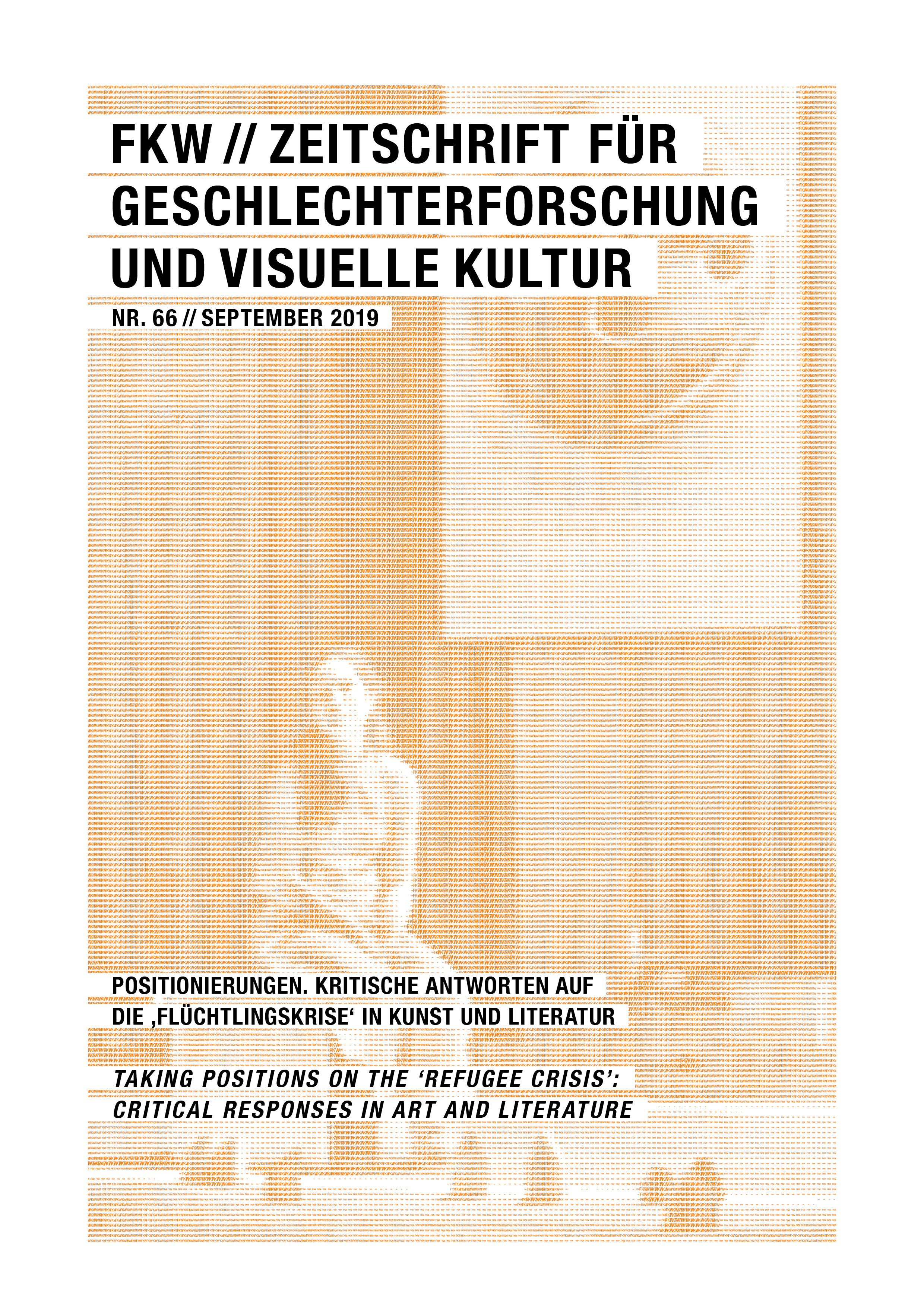Video Against the Machine: Lens-Based Interventions in The Refugee Crisis
DOI:
https://doi.org/10.57871/fkw6620191476Abstract
This article studies the military-industrial-surveillance complex at Europe’s borders as a machine that functions alongside and in response to the so-called refugee crisis, but that in itself is not in crisis at all. Following philosopher Maurizio Lazzarato’s definition of machinic systems, I conceptualize the machine as anapparatus that does not depend on techne perse, but as aseries of intertwined discursive/semiotic as well as non-discursive/material elements. When viewed through the lens of machine theory, the reduction of refugees to calculable formula and neatly arranged data packets cannot be seen as an isolated, purely discursive matter. It is part of a large machinic assemblage in which economic, judicial, social and technological components work together, producing material, immobilizing, de-subjectifying, as well as oftentimes lethal consequences for the human beings involved. Only after carefully studying the workings of this refugee machine, I argue, will it become possible to uncover possible modes of resistance against this controlling and objectifying system.
In order to analyse the military-industrial-surveillance complex at Europe’s borders as a machinic system, I turn to two art-house documentary films which do exactly that. Nathalie Loubeyre’s Flow Mechanics (2016) and Morgan Knibbe’s Those Who Feel the Fire Burning(2014) will be read as forms of machine analysis that are very much in line with Lazzarato’s machine theory, as they map intertwining parts of a large refugee-controlling system at work in Southern European countries.
Downloads
Veröffentlicht
Ausgabe
Rubrik
Lizenz
Copyright (c) 2019 FKW // Zeitschrift für Geschlechterforschung und visuelle Kultur

Dieses Werk steht unter der Lizenz Creative Commons Namensnennung - Nicht-kommerziell - Keine Bearbeitungen 4.0 International.
Die Autor_innen behalten das Copyright und treten keine exklusiven Nutzungsrechte an FKW ab.
Ab 2017 erscheinen alle Texte von FKW // Zeitschrift für Geschlechterforschung und visuelle Kultur unter der LizenzCC-BY-NC-ND Lizenz 4.0 International (Creative Commons, Namensnennung, Nicht Kommerziell, Keine Bearbeitung 4.0 International). Der Lizenzvertrag ist abrufbar unter: https://creativecommons.org/licenses/by-nc-nd/4.0/legalcode.de, eine allgemein verständliche Fassung unter: https://creativecommons.org/licenses/by-nc-nd/4.0/deed.de
Von 2013 bis 2016 sind alle Texte von FKW // Zeitschrift für Geschlechterforschung und visuelle Kultur unter der Digital Peer Publishing Lizenz (DPPL) erschienen. Der Lizenztext ist im Internet abrufbar unter der Adresse: http://nbn-resolving.de/urn:nbn:de:0009-dppl-v2-de3
Die Abbildungen in Ihrem Beitrag
Die Autor_innen verpflichten sich, die Abdruckgenehmigung für die in ihren Texten verwendeten Bilder bei der jeweiligen, die Bildrechte verwaltenden Institution einzuholen und die zuständige Herausgeberin über das Ergebnis zu informieren. Wir weisen darauf hin, dass die Verwendung von Bildern in wissenschaftlichen Texten gewöhnlich als Zitat angesehen und entsprechend kostenfrei gewährt wird.





